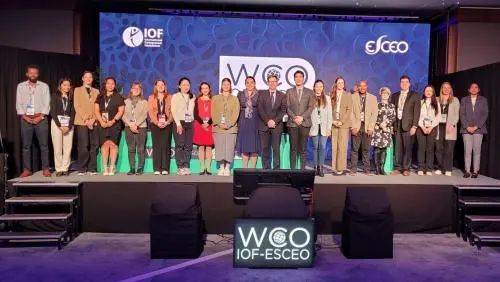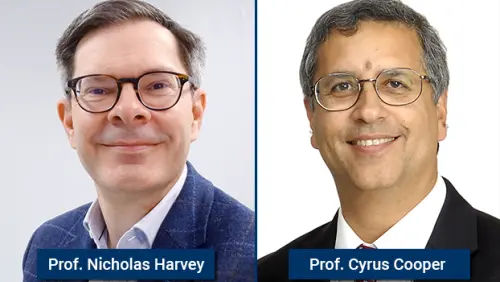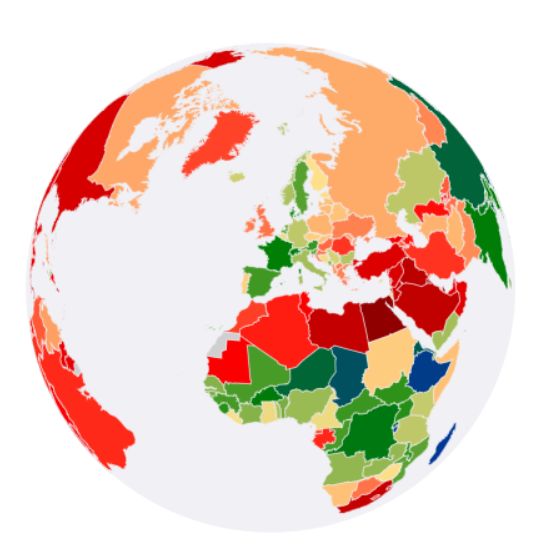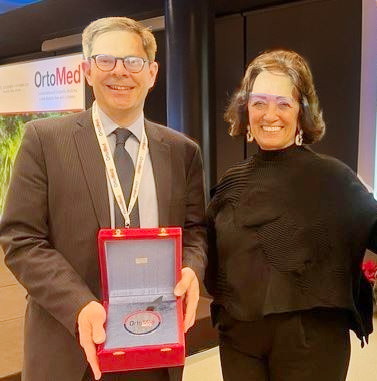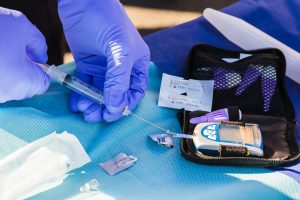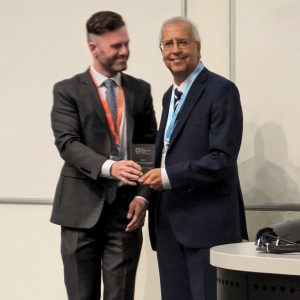[vc_row][vc_column][vc_column_text]Although inflammation can arise from infection or injury, chronic inflammation can occur in older age due to ageing processes in the immune system. Higher levels of inflammation in older age has been linked to lower bone density, according to a new study carried out at the University of Southampton.[/vc_column_text][vc_column_text]Scientists from the University’s Medical Research Council Lifecourse Epidemiology Unit (MRC LEU) examined the relationship between levels of inflammation in early old age and bone density at the spine and the hip. The relationship between levels of inflammation and change in bone density over the next 5 years was also explored.[/vc_column_text][vc_column_text]The study, published in Osteoporosis International, showed that higher levels of adiponectin was related to lower bone density at the spine and hip, and lower levels of interleukin-10 (IL-10) was associated with faster decline in bone density at the spine. Adiponectin and IL-10 each modify the pro- and anti-inflammatory balance.[/vc_column_text][vc_column_text]Lead author, Nicholas Fuggle, researcher at the University of Southampton, said “Low bone density increases the risk of osteoporosis which affects so many older people and is extremely debilitating. This study highlights the importance of inflammatory markers in the development of osteoporosis. We hope that this study will help us develop potential ways of combatting the condition which will lead to improvements in quality of life.”[/vc_column_text][vc_column_text]Professor Cyrus Cooper, Director of the MRC LEU, said: “Poor bone health in older age is a leading cause of disability worldwide and has huge economic costs for society. These results will inform the development of lifecourse intervention strategies to promote better musculoskeletal health in later life”.[/vc_column_text][vc_column_text]The study involved 365 men and women (aged 59-71 years when inflammation was assessed) from the Hertfordshire Cohort Study and was funded by the Medical Research Council. The work was funded and supported by the Medical Research Council of the UK; NIHR Biomedical Research Centres Southampton, Birmingham and Oxford; Arthritis Research UK; British Heart Foundation; and International Osteoporosis Foundation.[/vc_column_text][vc_column_text]The paper, Relationships between markers of inflammation and bone density: findings from the Hertfordshire Cohort Study, is published in Osteoporosis International, DOI: https://link.springer.com/article/10.1007%2Fs00198-018-4503-z.[/vc_column_text][/vc_column][/vc_row][vc_row][vc_column][vc_column_text]Notes for editors[/vc_column_text][vc_column_text]1) The University of Southampton drives original thinking, turns knowledge into action and impact, and creates solutions to the world’s challenges. We are among the top one per cent of institutions globally. Our academics are leaders in their fields, forging links with high-profile international businesses and organisations, and inspiring a 24,000-strong community of exceptional students, from over 135 countries worldwide. Through our high-quality education, the University helps students on a journey of discovery to realise their potential and join our global network of over 200,000 alumni. www.southampton.ac.uk[/vc_column_text][vc_column_text]2) The Medical Research Council is at the forefront of scientific discovery to improve human health. Founded in 1913 to tackle tuberculosis, the MRC now invests taxpayers’ money in some of the best medical research in the world across every area of health. Thirty-two MRC-funded researchers have won Nobel prizes in a wide range of disciplines, and MRC scientists have been behind such diverse discoveries as vitamins, the structure of DNA and the link between smoking and cancer, as well as achievements such as pioneering the use of randomised controlled trials, the invention of MRI scanning, and the development of a group of antibodies used in the making of some of the most successful drugs ever developed. Today, MRC-funded scientists tackle some of the greatest health problems facing humanity in the 21st century, from the rising tide of chronic diseases associated with ageing to the threats posed by rapidly mutating micro-organisms.www.mrc.ac.uk[/vc_column_text][vc_column_text]For more information
Charles Elder, Media Relations Officer, University of Southampton, Tel: 02380 598933[/vc_column_text][/vc_column][/vc_row]

